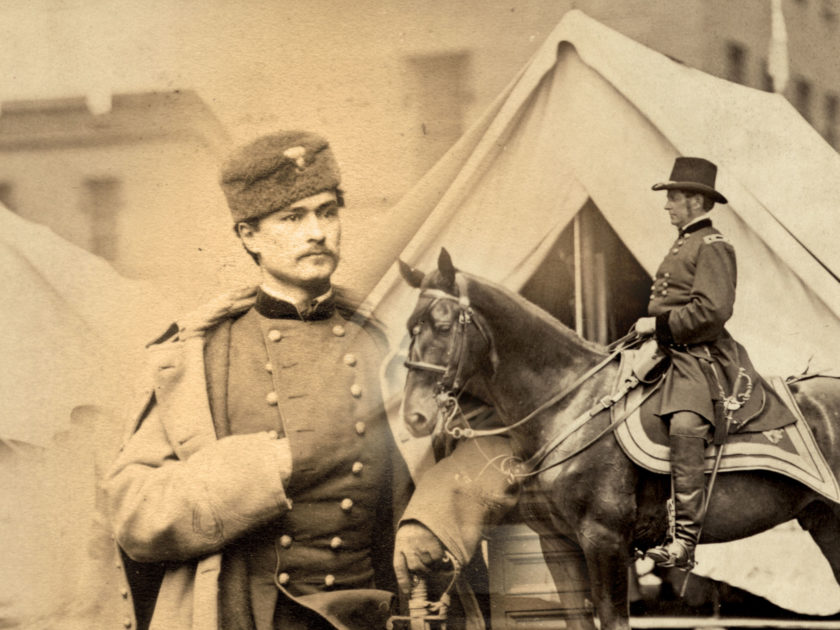
Artillery Capt. Hubert Dilger enjoyed a sterling reputation in the Army of the Potomac. One senior commander recalled long after the war, “In campaign and battle he displayed extraordinary energy; the first to bring his battery into action, and, in case of retreat, the last to leave the field.”
The man who made this statement, Maj. Gen. Oliver O. Howard, understood Dilger’s ability better than most anyone. In fact, the artilleryman’s leadership during the Battle of Chancellorsville provided one of the few bright spots in Howard’s beleaguered Eleventh Corps.
On May 2, 1863, Dilger rode out from the position he and his 1st Ohio Light Artillery occupied along the Plank Road to investigate enemy activity. He found Lt. Gen. Stonewall Jackson’s Confederates massing for a fight. Dilger bypassed the normal chain of command and made a beeline for the headquarters of the army’s commanding general, Joseph Hooker, to report the threat. Hooker and his staff, occupied with other operations, turned Dilger away.
The next day, Jackson’s forces tore into the Eleventh Corps and sent it flying. Dilger stood his ground as long as possible, and then covered the retreat with a single cannon, the recoil of each shot moving the gun slowly back to safety. He received the Medal of Honor for this action.

Those familiar with Dilger would not have been surprised that he earned the decoration. Born and military educated in his native Baden, Dilger served in the German artillery prior to coming to America. In the Union army, his aggressive manner attracted some—including Howard—but repelled others. He became known by a nickname borne from the non-regulation pants he wore: “Leatherbreeches.”
More than a century after Chancellorsville, biographer Carl A. Keyser compared Dilger to Maj. Gen. Billy Mitchell, who is widely regarded as the father of the U.S. Air Force. Keyser argued that Dilger “developed original and unconventional theories about the use of artillery. Mobility, accuracy of fire, and close support of infantry became his watchwords. Convinced he was right, he expressed himself directly and forcefully to superiors who were not always appreciative of such original thinking from a junior officer. His frankness and failure to gain acceptance of his ideas dogged his entire military career. Like Billy Mitchell of the Army Air Corps, Hubert Dilger became the archetype burr under the saddle of the horse artillery.”
Dilger survived Chancellorsville and the rest of the war. He died at age 75 in 1911.

